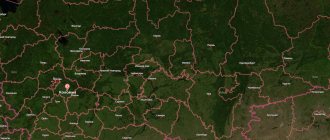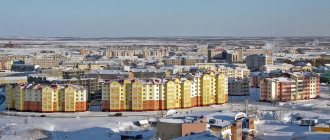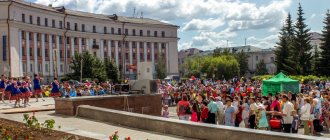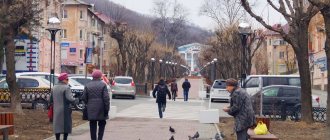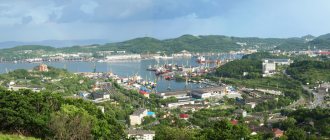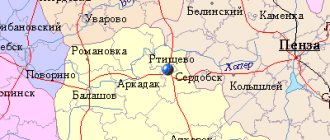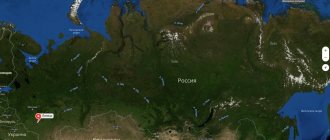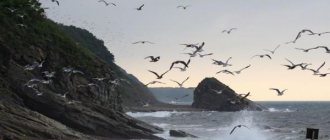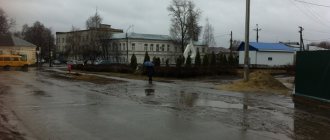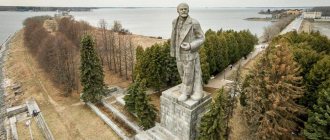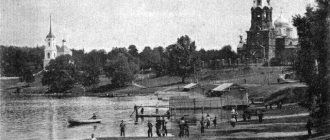Belebey on the map of Russia, geography, nature and climate
On the map of Russia, Belebey is adjacent to small towns such as Priyutovo, Bavly, Buguruslan, Oktyabrsky, Chishmy. It is located 180 km from Ufa (southwest of the district) on the territory of the Bugulminsko-Belebeevsky elevation , stands on the Usen River , 12 km from the Aksakovo railway station.
In the south-east of the city, 10 km away, there is the climatic village of Glukhovskaya and the climatic-kumis-therapeutic sanatorium Aksakovo.
A satellite map of Belebey reveals natural places - coniferous forests in the north of the region, oak groves and birch forests in the south. Spreading meadows stretch along the rivers.
Climate
- Average annual air temperature: 4.1 °C.
- Relative humidity: 67.3%.
- Average wind speed: 3.4 m/s.
| Belebey Climate | |||||||||||||
| Index | Jan. | Feb. | March | Apr. | May | June | July | Aug. | Sep. | Oct. | Nov. | Dec. | Year |
| Average temperature, °C | −11,4 | −11,2 | −6,1 | 4,3 | 13,5 | 19,0 | 20,9 | 18,3 | 12,4 | 4,3 | −5,1 | −10,7 | 4,1 |
| Source: [www.retscreen.net/ru/home.php NASA. RETScreen Database] | |||||||||||||
Sights of the city of Belebey
- Aksakovsky historical and cultural - the village of Nadezhdino is the birthplace of the Aksakov family, who lived here in the 19th century and were famous writers and poets (father Sergei and two sons - Ivan and Konstantin). On the basis of this story, a historical and cultural complex was created in Nadezhdino, consisting of the writer’s house and the Dmitrievsky Church.
- House of Culture - in 1967, a House of Culture was erected in Belebey, where auditoriums, reading and lecture halls, studios for amateur performances and children's clubs are now open.
- The building of the girls' gymnasium is a two-story building built in 1896. In 1934 it was renamed school No. 1, and in 1951 this educational institution was named after commander Ferapontov. 20 years later, a memorial to students and teachers who died in the Great Patriotic War was opened at the school.
- Museum of History and Local Lore - the museum was created by the city council to educate patriotic youth. Here are collected historical documents of the city, about its monuments, events, about famous and important residents, about the heroes of the city.
- The mosque is wooden - according to the historical archive, the mosque was built by Muslim residents of the city at their own expense in 1905. In 1936, the mosque was closed, and within its walls a shelter for deaf and dumb children was located. In the 80s there was a veterinary clinic here, and by the 90s the wooden Belebey mosque again became the spiritual home of Muslims.
- Monument to Marina Tsvetaeva and the Literary and Art Museum - the popularity of the poetess among city residents prompted the Belebey authorities to erect a monument to Tsvetaeva in 1992. In 1993, a museum was opened in honor of the poetess in the building of the Usen-Ivanovsky forestry. By 2010, it was moved to another building, an example of folk wooden architecture, next to Barsky Pond.
- St. Nicholas Cathedral is a brick church in the eclectic style built in 1893-99. Under Soviet rule, a factory for agricultural equipment was located there, and in the 1990s it again became a temple for parishioners.
- Cathedral of the Archangel Michael is a brick church in the classicist style (1828). And in the 1930s, the cathedral was also closed and then returned to the believers.
Story
History of the city of Belebey
Belebey is one of the oldest cities in Bashkortostan, which recently celebrated its 225th anniversary.
Only Ufa, Birsk and Sterlitamak are older than him. Belebey has several versions of the origin of its name. One of them is due to the fact that the city is located near the Belebeyka River. The first mention of Belebey dates back to 1757.
In 1781, Belebey, a center of the mining industry with three copper smelters, was transformed into a county town in the Ufa province by decree of Catherine the Great. During these same years, thanks to successful farming, alcohol production began and the merchant class developed. The city acquires great importance in the life of the entire county and becomes one of the economically developed centers of the province.
The founders of the city are considered to be the Chuvash, who, fleeing forced Christianization, fled to these regions from the Cheboksary district of the Kazan province and leased forest and arable land from the Dem Bashkirs on contractual terms.
Today, more than 34 nationalities live and work here. Of these, the most numerous are: Russians - 50%, Tatars - 24%, Chuvash - 14%, Bashkirs - 6%, Ukrainians - more than 3%, as well as Mordovians, Germans, Mari, Udmurts, Azerbaijanis, etc.
Symbols of the city of Belebey
| Based | in 1781 |
| Territory | 39 sq. km |
| Population | 61,016 people |
Coat of arms
In a scarlet field there are two black quivers trimmed with gold with silver arrows, placed crosswise. Approved by the decision of the Council of the urban settlement of the city of Belebey of the Republic of Bashkortostan dated November 17, 2006 No. 82. Included in the State Register of Symbols in the Republic of Bashkortostan with the assignment of registration number 006. Included in the State Heraldic Register of the Russian Federation with the assignment of registration number 2958. The author of the coat of arms, approved on June 8, 1782, is actual state councilor A.A. Volkov.
Flag
A rectangular panel of red color with a width to length ratio of 2:3, reproducing the composition of the coat of arms of the city of Belebey in red, black, white and yellow. Approved by the decision of the Council of the urban settlement of the city of Belebey of the Republic of Bashkortostan dated November 17, 2006 No. 83. Included in the State Register of Symbols in the Republic of Bashkortostan with the assignment of registration number 006. Included in the State Heraldic Register of the Russian Federation with the assignment of registration number 3244.
Rationale for symbolism:
In a red field there are two cross-shaped black quivers framed in gold with silver arrows - this composition of the coat of arms reflects the historical, cultural and national characteristics and traditions of the city. According to the Russian State Historical Archive (F.1343.Op. 15.D.238.L.15-15 vol.), this means that “the local residents were more than once involved in military service in the form of irregular cavalry, especially for campaigns in Prussia and other countries...", and also "the inhabitants of these places knew how to use this weapon with praise." For services to the Fatherland, Catherine II awarded Belebey with her own coat of arms on June 8, 1782.
Quivers with arrows remain on the modern coat of arms, personifying the historical connection of time. More than two centuries of history of the city testifies to the selfless love of Belebey residents for their city, their pride in the heroic past.
The awarding of the city in 1981 with the Order of the Badge of Honor was recognition of the services of the residents of Belebey to the Fatherland both on the battlefield and in peacetime.
Symbols of Belebeevsky district
| Education | August 20, 1930 |
| Center | Belebey |
| Territory | 1912 sq. km. |
| Population | 101,993 people |
| Number of settlements | 89 |
Coat of arms
In a green field, an elevated silver galloping horse with golden eyes, mane, tail and hooves, accompanied below by a scarlet, thinly edged gold bar with concave sides, burdened with two crosswise silver quivers trimmed with gold with silver arrows. Approved by the decision of the Council of the municipal district of Belebeevsky district of the Republic of Bashkortostan dated November 24, 2006 No. 213. Included in the State Register of Symbols in the Republic of Bashkortostan with the assignment of registration number 005. Included in the State Heraldic Register of the Russian Federation with the assignment of registration number 2957.
Author Salavat Gilyazetdinov.
Flag
A rectangular panel with a width to length ratio of 2:3, consisting of two horizontal stripes: the top green stripe with a width of ? the width of the panel and the bottom are red; in the center of the green stripe is a white galloping horse with yellow eyes, mane, tail and hooves. Approved by the decision of the Council of the municipal district of Belebeevsky district of the Republic of Bashkortostan dated November 24, 2006 No. 214. Included in the State Register of Symbols in the Republic of Bashkortostan with the assignment of registration number 005. Included in the State Heraldic Register of the Russian Federation with the assignment of registration number 3201. Author Salavat Gilyazetdinov.
Rationale for symbolism:
The composition of the coat of arms reflects historical, geographical, socio-economic, cultural and national characteristics and traditions.
The area is located on the Bugulma-Belebeevskaya Upland, unique in its beauty and natural and climatic conditions, where many rivers originate, feeding the great Volga River. Therefore, the green field of the coat of arms also symbolizes abundance, fertility and peace.
At the top of the field is a galloping silver horse. In heraldry, the image of a horse is endowed with many positive properties: the courage of a lion, the agility of a fox. The silver horse is a symbol of life, light, hard work, courage, and strength. Military valor and glory.
The galloping horse is a symbol of the continuous, dynamic development of the area.
Horses served people both in military affairs and in peaceful life. The Belebey land is rich in feather grass steppes, on which herds of mares graze, providing healing milk for the production of kumis, which gives heroic strength and health. The tradition of kumiss making has been preserved to this day: the region is famous for its kumiss clinics.
In the lower part of the coat of arms, in a red field, there are two silver quivers trimmed with gold with silver arrows, placed crosswise - an element of the coat of arms of the city of Belebey, the center of the Belebeyevsky district. The color red symbolizes love, courage, bravery, as well as the blood shed for the Fatherland.
The silver color in the coat of arms symbolizes purity of thoughts, faith, sincerity, nobility and frankness, especially characteristic of the Belebey people.
Main streets of Belebey
The map of Belebey with streets is simple; long avenues and adjacent streets and alleys stretch across the city.
- st. Voikova - has 134 houses, on this street there is the Vstrecha restaurant and the Belebey bus station. The street passes by the Belebey city forest park.
- st. Red - runs along the Chapaev Park, intersects with Lenin Street and goes around the central square. Also on Krasnaya Street is the Belebey district administration, a children's clinic, a Pyaterochka supermarket and a historical local history museum.
- st. Lenina - on one side of the street there is a city forest park, on the other there are many small streets and residential buildings. Lenin Street goes around the district administration on the main square and intersects with the street. Revolutionaries.
- st. Revolutionaries - along this street you can get to the House of Culture; one side is occupied by a forest, near which the Belebey Central Hospital is located.
The map of Belebey with houses is reliable; all residential, administrative and cultural buildings are marked.
Education
Higher education institutions
- Branch of Samara State University of Architecture and Civil Engineering.
Secondary and primary vocational education institutions
- Belebeyevsky Medical College,
- Belebeevsky Humanitarian and Technical College,
- Belebeevsky College of Mechanization and Electrification of Agriculture,
- Professional Lyceum No. 40,
- Belebeyevsky Pedagogical School.
Secondary schools and gymnasiums
- Gymnasium No. 1;
- Tatar gymnasium;
- Chuvash gymnasium;
- Bashkir boarding school;
- Secondary School No. 1;
- Secondary School No. 2;
- Secondary School No. 8;
- Secondary school No. 15;
- Secondary school No. 17;
- Secondary school No. 18;
- Boarding school.
Mass media
A television
| TVK | TV channel | Power, kWt) | Mast |
| 9 | First channel | 5 | RTPS |
| 12 | Russia 1 / State Television and Radio Broadcasting Company "Bashkortostan" | 5 | RTPS |
| 23 | TV Center | 0,1 | RTPS |
| 27 | BST | 5 | RTPS |
| 30 | Russia K / Euronews | 2 | RTPS |
| 32 | plan digital DVB-T2 (1 mp) | 1 | RTPS |
| 34 | NTV / Belebey-TV | 0,1 | RTPS |
| 56 | plan digital DVB-T (2 mp) | 1 | RTPS |
Radio
- 70.61 MHz – Radio Russia
- 91.3 MHz - DFM;
- 98.9 MHz - Radio Dacha;
- 99.3 MHz - plan
- 100.5 MHz - Russian Radio;
- 101.5 MHz - Plan
- 102.4 MHz - Plan
- 104.2 MHz - Radio Vanya plan;
- 104.7 MHz - Radio Yuldash;
- 106.6 MHz - Plan
- 107.2 MHz - Satellite FM.
Excerpt characterizing Belebey
Denisov wrinkled his face even more. “Skveg’no,” he said, throwing away a wallet with several gold pieces. “G’ostov, count, my dear, how much is left there, and put the wallet under the pillow,” he said and went out to the sergeant. Rostov took the money and, mechanically, putting aside and arranging old and new gold pieces in piles, began to count them. - A! Telyanin! Zdogovo! They blew me up suddenly! – Denisov’s voice was heard from another room. - Who? At Bykov’s, at the rat’s?... I knew,” said another thin voice, and after that Lieutenant Telyanin, a small officer of the same squadron, entered the room. Rostov threw his wallet under the pillow and shook the small, damp hand extended to him. Telyanin was transferred from the guard for something before the campaign. He behaved very well in the regiment; but they did not like him, and in particular Rostov could neither overcome nor hide his causeless disgust for this officer. - Well, young cavalryman, how is my Grachik serving you? - he asked. (Grachik was a riding horse, a carriage, sold by Telyanin to Rostov.) The lieutenant never looked into the eyes of the person he was talking to; his eyes constantly darted from one object to another. “I saw you rode by today...” “Nothing, good horse,” answered Rostov, despite the fact that this horse, which he bought for 700 rubles, was not worth even half of that price. “She started falling on the left front...,” he added. - The hoof is cracked! It's nothing. I will teach you and show you which rivet to use. “Yes, please show me,” said Rostov. “I’ll show you, I’ll show you, it’s not a secret.” And you will be grateful for the horse. “So I’ll order the horse to be brought,” said Rostov, wanting to get rid of Telyanin, and went out to order the horse to be brought. In the entryway, Denisov, holding a pipe, huddled on the threshold, sat in front of the sergeant, who was reporting something. Seeing Rostov, Denisov winced and, pointing over his shoulder with his thumb into the room in which Telyanin was sitting, winced and shook with disgust. “Oh, I don’t like the fellow,” he said, not embarrassed by the sergeant’s presence. Rostov shrugged his shoulders, as if saying: “Me too, but what can I do!” and, having given orders, returned to Telyanin. Telyanin was still sitting in the same lazy position in which Rostov had left him, rubbing his small white hands. “There are such nasty faces,” Rostov thought as he entered the room. - Well, did they tell you to bring the horse? - Telyanin said, getting up and looking around casually. - I ordered it. - Let's go on our own. I just came in to ask Denisov about yesterday’s order. Got it, Denisov? - Not yet. Where are you going? “I want to teach a young man how to shoe a horse,” said Telyanin. They went out onto the porch and into the stables. The lieutenant showed how to make a rivet and went home. When Rostov returned, there was a bottle of vodka and sausage on the table. Denisov sat in front of the table and cracked his pen on paper. He looked gloomily into Rostov's face. “I’m writing to her,” he said. He leaned his elbows on the table with a pen in his hand, and, obviously delighted at the opportunity to quickly say in words everything he wanted to write, expressed his letter to Rostov. “You see, dg'ug,” he said. - We sleep until we love. We are children of God... but I fell in love - and you are God, you are pure, as on the day of creation... Who else is this? Drive him to Chog't. Once! - he shouted at Lavrushka, who, without any timidity, approached him. - Who should be? They ordered it themselves. The sergeant came for the money. Denisov frowned, wanted to shout something and fell silent. “It’s a big deal,” he said to himself. - How much money is left in the wallet? - he asked Rostov. – Seven new and three old. - Ah, skveg'no! Well, why are you standing there, stuffed animals, send the sergeant-major,” Denisov shouted at Lavrushka. “Please, Denisov, take the money from me, because I have it,” Rostov said, blushing. “I don’t like to borrow from my own people, I don’t like it,” Denisov grumbled. “And if you don’t take the money from me in a friendly manner, you’ll offend me.” “Really, I have it,” Rostov repeated. - No. And Denisov went to the bed to take out his wallet from under the pillow. - Where did you put it, Rostov? - Under the bottom pillow. - No, no. Denisov threw both pillows onto the floor. There was no wallet. - What a miracle! - Wait, didn’t you drop it? - said Rostov, lifting the pillows one by one and shaking them out. He threw off and shook off the blanket. There was no wallet. - Have I forgotten? No, I also thought that you were definitely putting a treasure under your head,” said Rostov. - I put my wallet here. Where is he? – he turned to Lavrushka. - I didn’t go in. Where they put it is where it should be. - No... - You just throw it somewhere and forget. Look in your pockets. “No, if only I hadn’t thought about the treasure,” said Rostov, “otherwise I remember what I put in.” Lavrushka rummaged through the entire bed, looked under it, under the table, rummaged through the entire room and stopped in the middle of the room. Denisov silently followed Lavrushka’s movements and, when Lavrushka threw up his hands in surprise, saying that he was nowhere, he looked back at Rostov. - G'ostov, you are not a schoolboy... Rostov felt Denisov's gaze on him, raised his eyes and at the same moment lowered them. All his blood, which was trapped somewhere below his throat, poured into his face and eyes. He couldn't catch his breath. “And there was no one in the room except the lieutenant and yourself.” “Here somewhere,” said Lavrushka. “Well, you little doll, move around, look,” Denisov suddenly shouted, turning purple and rushing at the footman with a threatening gesture. - Make sure you have a wallet, otherwise I’ll burn it. I'll kill everyone! Rostov, looking around Denisov, began to button up his jacket, strapped on his saber and put on his cap. “I tell you to have a wallet,” Denisov shouted, shaking the orderly by the shoulders and pushing him against the wall. - Denisov, leave him alone; “I know who took it,” Rostov said, approaching the door and not raising his eyes. Denisov stopped, thought and, apparently understanding what Rostov was hinting at, grabbed his hand. – Gasp! - he shouted so that the veins, like ropes, swelled on his neck and forehead. “I’m telling you, you’re crazy, I won’t allow it.” The wallet is here; I'll take the shit out of this mega-dealer, and it will be here. “I know who took it,” Rostov repeated in a trembling voice and went to the door. “And I’m telling you, don’t you dare do this,” Denisov shouted, rushing to the cadet to hold him back. But Rostov snatched his hand away and with such malice, as if Denisov were his greatest enemy, directly and firmly fixed his eyes on him. - Do you understand what you are saying? - he said in a trembling voice, - there was no one in the room except me. Therefore, if not this, then... He could not finish and ran out of the room. “Oh, what’s wrong with you and with everyone,” were the last words that Rostov heard. Rostov came to Telyanin’s apartment. “The master is not at home, they have left for headquarters,” Telyanin’s orderly told him. - Or what happened? - added the orderly, surprised at the upset face of the cadet. - There is nothing. “We missed it a little,” said the orderly. The headquarters was located three miles from Salzenek. Rostov, without going home, took a horse and rode to headquarters. In the village occupied by the headquarters there was a tavern frequented by officers. Rostov arrived at the tavern; at the porch he saw Telyanin's horse. In the second room of the tavern the lieutenant was sitting with a plate of sausages and a bottle of wine. “Oh, and you’ve stopped by, young man,” he said, smiling and raising his eyebrows high. “Yes,” said Rostov, as if it took a lot of effort to pronounce this word, and sat down at the next table. Both were silent; There were two Germans and one Russian officer sitting in the room. Everyone was silent, and the sounds of knives on plates and the lieutenant’s slurping could be heard. When Telyanin finished breakfast, he took a double wallet out of his pocket, pulled apart the rings with his small white fingers curved upward, took out a gold one and, raising his eyebrows, gave the money to the servant. “Please hurry,” he said. The gold one was new. Rostov stood up and approached Telyanin. “Let me see your wallet,” he said in a quiet, barely audible voice. With darting eyes, but still raised eyebrows, Telyanin handed over the wallet. “Yes, a nice wallet... Yes... yes...” he said and suddenly turned pale. “Look, young man,” he added. Rostov took the wallet in his hands and looked at it, and at the money that was in it, and at Telyanin. The lieutenant looked around, as was his habit, and suddenly seemed to become very cheerful. “If we’re in Vienna, I’ll leave everything there, but now there’s nowhere to put it in these crappy little towns,” he said. - Well, come on, young man, I’ll go. Rostov was silent. - What about you? Should I have breakfast too? “They feed me decently,” Telyanin continued. - Come on. He reached out and grabbed the wallet. Rostov released him. Telyanin took the wallet and began to put it in the pocket of his leggings, and his eyebrows rose casually, and his mouth opened slightly, as if he was saying: “yes, yes, I’m putting my wallet in my pocket, and it’s very simple, and no one cares about it.” . - Well, what, young man? - he said, sighing and looking into Rostov’s eyes from under raised eyebrows. Some kind of light from the eyes, with the speed of an electric spark, ran from Telyanin’s eyes to Rostov’s eyes and back, back and back, all in an instant. “Come here,” Rostov said, grabbing Telyanin by the hand. He almost dragged him to the window. “This is Denisov’s money, you took it...” he whispered in his ear. – What?... What?... How dare you? What?...” said Telyanin. But these words sounded like a plaintive, desperate cry and a plea for forgiveness. As soon as Rostov heard this sound of the voice, a huge stone of doubt fell from his soul. He felt joy and at the same moment he felt sorry for the unfortunate man standing in front of him; but it was necessary to complete the work begun.
From the Zemstvo Council to the St. Nicholas Church
This street was formerly called Torgovaya. It goes uphill from the old quarters towards the “construction site”. Around there are stone storage sheds and shops built in 1901 - 1904. Today they house private shops.
Here, apparently, a money man is coming towards you. The soul is wide, the hand is strong, the wallet is thick, everything is clear to him. Maybe he was a little tired from his hectic life. It seems that his worldly sea has opened up, there are no shores in sight, sail to all ends.
“I work in the north, Mikhail,” he introduced himself, but at the end of the conversation he admitted that his name was Vladislav. — He left the factory on time, when “Autonormal” had not yet laid down on its side and many were hoping for something. Now those who worked in the plant management are no longer looking for a prestigious job, but are looking for at least some kind of work. For many, their only hope is in the garden - they dig into the soil little by little. Intellectual people often come to us for the autumn holidays and read poetry with excitement. But an elevated life still needs some grounding...
Thin man. I touched on an interesting topic.
Directly opposite the shopping arcades is a beautiful building of the zemstvo government. It houses a branch of the University of Architecture and Civil Engineering.
Before the revolution, the cinematograph “Illusion” was located in the neighboring house. A little higher up the street are the brick houses of the mayor Alexander Lavrovich Napalkov, erected in 1865. The semi-basement of the mansion is known for the fact that it housed a printing house, and in 1919 the famous Czech satirist Jaroslav Hasek worked here. He served as head of the mobile printing house of the political department of the 5th Army.
A branch of the University of Architecture and Civil Engineering is located in the former building of the Zemstvo Government. Photo by Sergei Sinenko
The St. Nicholas Church, built in the 1890s, housed industrial workshops in the post-revolutionary period. There was a project for the reconstruction of the building, but it was planned to build a concert hall in it. After the return of the temple to believers, no funds were found for restoration. Construction began relatively recently, but the reconstruction is already ending, all that remains is to restore the bell tower.
Coming towards me is a young woman. Her lips are so brightly painted that it looks like she’s holding a radish in her lips. I try to take a photo, but she waves her arms.
- Just not against the backdrop of the church! I belong to Jehovah's Witnesses.
Let's get acquainted. Lilya used to work at a distillery, now she takes care of the elderly and sick people.
“No, I’m very squeamish and do everything with gloves,” she explains. “People should just help others and live, if possible, a spiritual life.” I think the situation can be changed by the creation of a world government that will reconcile everyone and resolve disputes between people...
The St. Nicholas Church, built in the 1890s, housed industrial workshops in the post-revolutionary period. The restoration began relatively recently, but the reconstruction is already ending, all that remains is to restore the bell tower. Photo by Sergei Sinenko
On the World Wide Web
This year, Belebey residents even seem to have become stars in posting advertisements online; newspapers wrote about it. So, at the end of March, a resident of Belebey tried to sell Russia at the famous online auction e-bay. According to the lot description, “the country has been used for a thousand years and is in good condition,” Forbes writes. The link included photographs of the Kremlin, a sports team fan, a Topol-M missile launcher, and a political map of the state.
The ad was deleted by the site administration, but after a couple of weeks the joker gained a follower. If it didn’t work out with the country, then at least the city! — thought an Internet user and posted information about the sale of Belebey on the website of a reputable advertisement newspaper. For the entire city, the seller asked for only 999 rubles, but promised to give the buyer Ufa as a bonus.
Perhaps behind this eccentricity is the most common boredom (“Oh, it’s boring, if only the guy died or the house caught fire diagonally!”), but it is possible that general irritation spills out in this form. Be that as it may, this eccentricity is unlikely to serve the city well. The image of the city, which has been formed over the years and has become culturally rich, loses a lot from this.
